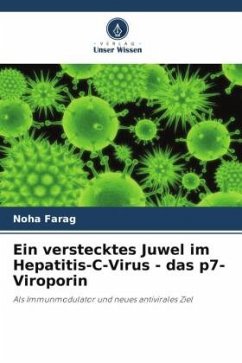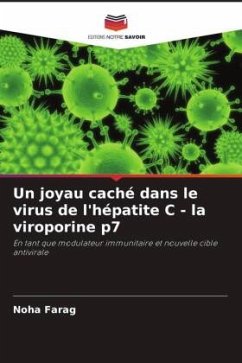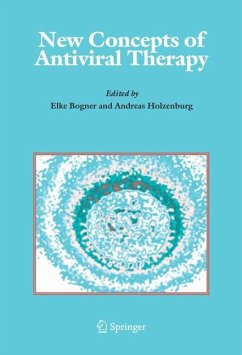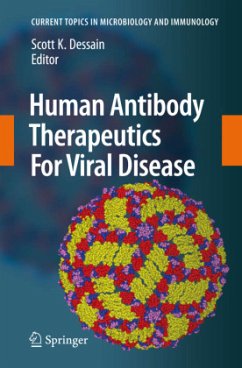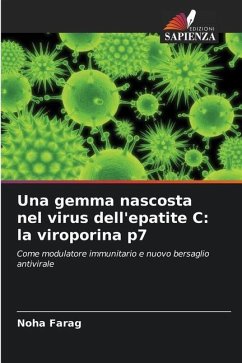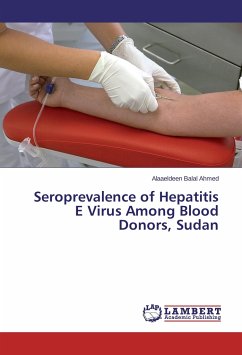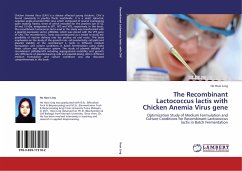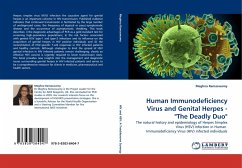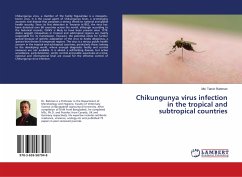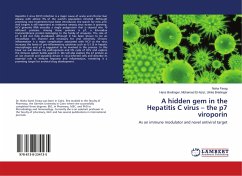
A hidden gem in the Hepatitis C virus - the p7 viroporin
As an immune modulator and novel antiviral target
Versandkostenfrei!
Versandfertig in 6-10 Tagen
19,99 €
inkl. MwSt.

PAYBACK Punkte
10 °P sammeln!
Hepatitis C virus (HCV) infection is a major cause of acute and chronic liver disease with almost 3% of the world's population infected. Although promising new treatments have been introduced, the search for new anti-viral targets is still important as resistance among virus strains is growing. HCV genomic RNA encodes a single polyprotein that is cleaved into 10 different proteins. Among these proteins is p7, a 63-residue transmembrane protein belonging to the family of viropoins. The role of p7 is still not fully elucidated, although it has been shown to be an intracellular ion channel and ne...
Hepatitis C virus (HCV) infection is a major cause of acute and chronic liver disease with almost 3% of the world's population infected. Although promising new treatments have been introduced, the search for new anti-viral targets is still important as resistance among virus strains is growing. HCV genomic RNA encodes a single polyprotein that is cleaved into 10 different proteins. Among these proteins is p7, a 63-residue transmembrane protein belonging to the family of viropoins. The role of p7 is still not fully elucidated, although it has been shown to be an intracellular ion channel and necessary for viral infectivity. Chronic inflammation is a major complication associated with HCV as the virus increases the levels of pro-inflammatory cytokines such as IL-1 beta in hepatic macrophages and p7 is suggested to be involved in the process. In this book we will discuss the pathogenesis and life cycle of HCV and explore the immune system battle against it. We will also explore the p7 protein as an ion channel and signaling device in virus-infected cells and describe its essential role in immune response and inflammation, rendering it a promising target for antiviral drug development.



